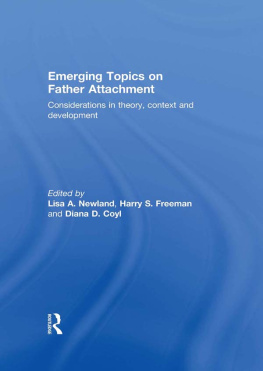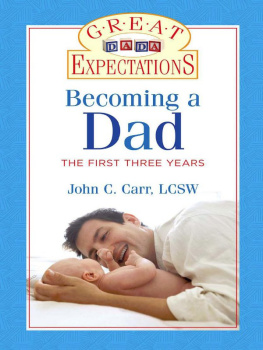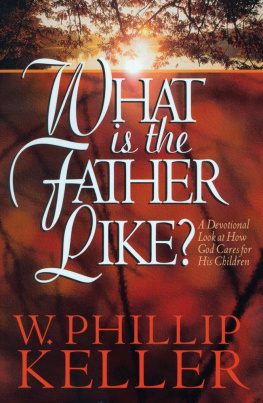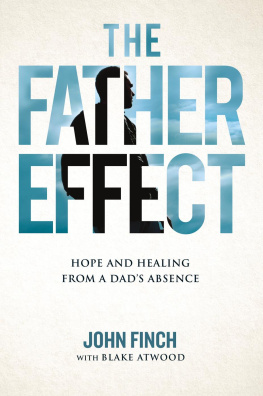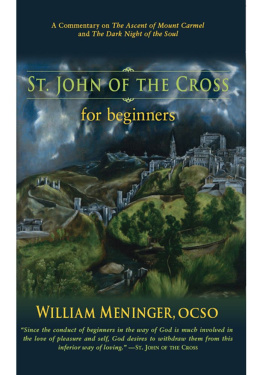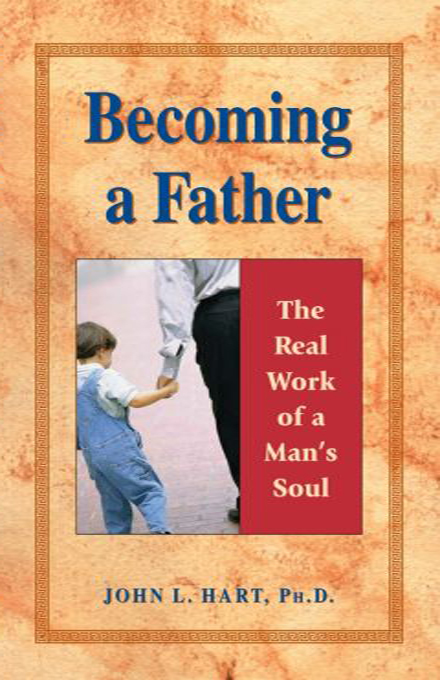
Table of Contents
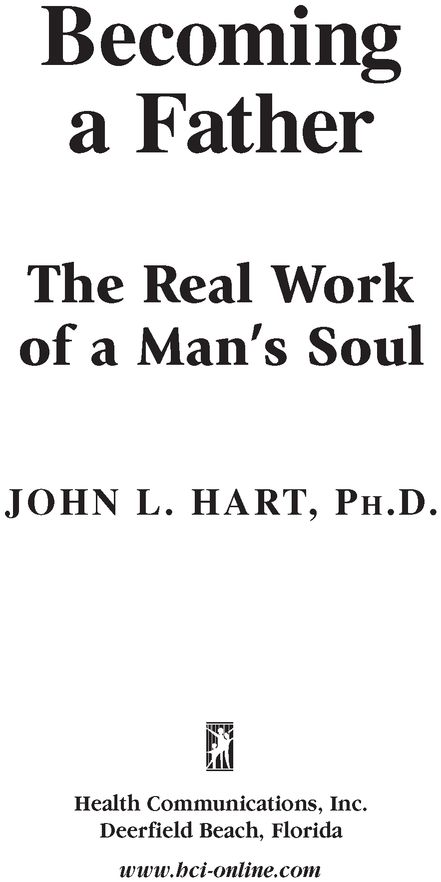
Acknowledgments
I would like to thank the many people who have helped to shape Becoming a Father.
This book is the sum of many parts. It goes back at least as far as my two grandfathers. The Reverend Hamilton was an Iowa horseback Methodist minister, who baptized people in rivers, wrote poetry, and loved the study of psychology and dreams. Orlie Hart was a deacon in his church, a blacksmith, a farmer and a great storyteller, and a grandfather who took lots of time to show his grandson the wonders of Oregon nature. Coach Pete Janin was a man who opened his home to lonely Little League ballplayers. Coaches Paul Poetsch and Coach Roy Helser spent countless hours after school and during the summers with boys who needed their guidance and skills in becoming young men with pride and self-esteem.
We find many fathers and friends along the way. Robert Bly encouraged my poetry, my writing and my work. Mel Henry provided encouragement and friendship. Charlie Bensley, Gunnar Cramer, Dag Furuholmen, Bill Mairs, Steve Smith and Bruce Schmidt are the best of friends and helped more than they know with this book. I especially thank Berger Hareide for his guidance, spiritual strength, knowledge of Christian literature, inspiration and steadfast friendship. Thank you Joseph Hart for everything.
Thank you Shirley Bell, Jill Penkus, Nancy Hart and Connie Nicholas Carnes for guidance, inspiration and heartfelt support.
I thank Sharron Barefoot for her many hours of typing.
I would like to thank Lakshmi Narayan, Head Librarian of the Krotona Library in Ojai, California, for her thoughtful guidance and assistance in finding research materials.
Jack Canfield deserves special thanks for his support and encouragement with this project. I would like to thank Peter Vegso of Health Communications for believing in this project.
Thank you Matthew Diener for your special vision, your encouragement, insights and guidance as my editor.
And a very special thank you to Andrea Torokvei for: her love, becoming my wife, helping me create this book, always being there for me, and helping me to believe. Special thanks as well to Nick Torokvei for letting me be one of the men in your life.
And I thank God every day for my beautiful daughter Kelly Lara Hart for all the joy, laughter and love she has given me, and the fatherhood you have brought me.
Introduction
Dear Reader: The Books of Joseph are fiction. I wrote them with respect and admiration for the biblical figure of Joseph. They are the products of my imagination. I wrote them after reading and prayer on Sunday mornings and they became an important spiritual exercise for me. I sincerely hope that no one is offended by my interpretation of this ancient and sacred story, for none is intended. I want only to show how important fathers are to the raising of their children. I have taken poetic and imaginative jumps, and this story of Joseph is neither theologically nor historically perfect.
I am a father, a poet, college professor and Vietnam veteran. I tried to write a story that contemporary fathers could hear and appreciate. We need fathers all of our lives and there are so many children who need one right now. I hope in the story of Joseph and Jesus you can hear yourself and your child.
The Stages of Fatherhood
1. Acknowledgment or Denial
2. Role Acceptance (Providing and Protecting) or Rejection
3. Bonding and Connectedness and Boundaries
4. Emotional Coaching of the Personal, Moral and Spiritual Intelligences
5. Fatherhood and Mentoring
The stages of fatherhood are not to be seen as steps carved in stone. Like all developmental stages the levels are really passages that should be seen more like a spiral than steps. As a man passes from one stage to the next it is certainly entirely possible to go backwards or to jump ahead two or more stages. Someone might even be in two different stages simultaneously.
For example, a man might completely be in Stage Onedenial of paternity of one child he has fathered with one womanand then and at the same time be at Stage Two in acceptance of the role of father for another child with another woman. A man can even be in different stages of development with different children within his family. Certainly many daughters and some sons in our paternalistic society find themselves with fathers who reject them while bonding and connecting with their sibling.
I believe, however, that the stages give us a working guide to different levels of fathering on an emotional, behavioral, moral and spiritual level. We should consider the interactive dynamic of fathering. That means that fathering affects you as much as it does the child. A father who is in denial of being the father of a child he knows to be his own is carrying a bastard inside himself. His is not someone who could ever claim to be a man worthy of fatherhood. For the story of Joseph will show clearly that being a father develops the man as much as the father develops the child. A man in denial will carry a dark hole inside himself. A man rejecting will push away something inside his own self that needs to be acknowledged and to grow. A man that does not bond and connect will not develop his own personal, moral and spiritual intelligence. His heart and soul will be diminished.
Stage Five of fatherhood is a developmental level that encompasses the soul as well as the heart. This man watches out for all children in our society. It is a man who desires to raise well the next generation in his business, his profession, his craft or labor. It is a man who lives out the life of being the good father. It is a level of fathering to be reached for by each of us and by every society. We can thank Joseph, the earthly father of Jesus, for setting us a standard to strive towards.
PART I
FATHERHOOD AND ITS ROLES
The Child Is Father of the Man
The child is father of the man.
William Wordsworth
In many ways, the first modern father was perhaps the most overlooked parent in history. He raised a child that was not his. He provided a home and raised him as if he were his own. He provided shelter of the old-fashioned kind because his stepson was from birth a fugitive and Joseph was there for him. He provided protection; he did anything and everything that was necessary.
He played with him. He helped him know what it meant to be a man and a decent human being. He raised him to be someone special, taught him his trade, took him fishing and didnt get in the way of his stepsons own destiny. Presumably, Joseph stood by, holding back his fatherly instincts to fight and battle to save the life of this young man he must have dearly loved.
He stood by to hear the agony of the nails being driven in, and stood by during Jesus suffering, spearing, and his slow dying. He was there hearing his stepson cry, Father, why hast thou forsaken me? Standing there, crying himself by now, and thinking does he mean me, does he want me to try to do something? Standing there, just standing there. For his own soul and his own destiny, he was standing there. Surely, this was the soul work of being Jesus earthly father. A man named Joseph fulfilling his own lifes work of being as good a father as he possibly could.
Next page

